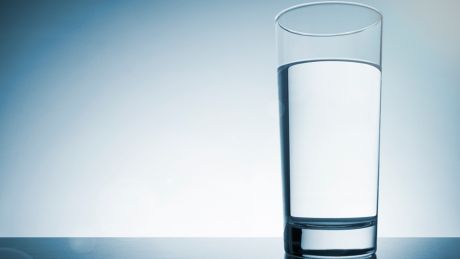What You Need to Know About Dehydration
Here’s why it’s essential to drink enough water if you want to perform at your best

Sign up for workout ideas, training advice, reviews of the latest gear and more.
You are now subscribed
Your newsletter sign-up was successful
Why does my body need water?
The male body is on average 69% water, so you’re more water than anything else. While you can go longer for a month without food, you won’t survive more than a few days without water.
The reasons include its role in protecting and cushioning the brain, spinal column and other tissues, regulating body temperature, lubricating joints, and removing toxins and waste products through perspiration and excretion, among many others.
Most water leaves your body through perspiration and excretion (sweat and urine), but significant quantities are also lost through breathing as water vapour.
Adequate water intake is required daily to prevent dehydration, which can lead to a rapid decline in mental and physical performance. It’s very easy to lose a lot of body water when training intensively, especially in hot conditions.
What happens when I get dehydrated?
The less water in your body, the thicker your blood. This forces your heart to pump harder to deliver oxygen to your brain, organs, muscles and every cell in your body. If you’re dehydrated your body will be going haywire trying to fix the problem and as dehydration gets worse you’ll feel thirsty, dizzy, irritable and have a headache.
Without water at this point your condition will worsen into fatigue and exhaustion, with poor motor function so you’ll be clumsy and unco-ordinated. From here, your condition will worsen with nausea, dizziness and vomiting all common before your eyesight fails and other functions begin to shut down as you fall into a coma. Without remedy, death soon follows.
How does dehydration affect how I perform?
Even a 1% decline in fluids as a percentage of total bodyweight can negatively impair performance, according to research from the California University of Pennsylvania, while a decline of 3% and higher significantly increases the risk of heat exhaustion or heat stroke.
Sign up for workout ideas, training advice, reviews of the latest gear and more.
Dehydration of 2% impairs mental performance in tasks that require attention, psychomotor and immediate memory skills, according to the American Journal of College Nutrition, which is no surprise because your brain is predominantly water.
The more activity you do and the higher the temperature, the more your daily fluid intake must increase to avoid dehydration. Research in the journal Nutrition advises drinking 200ml to 285ml of water for every ten to 20 minutes of moderate exercise. If it’s hot and you’re working out intensively then you will need more, and you may need electrolytes too.
How do I know if I am dehydrated?
The first and most obvious sign is that you feel thirsty. At the onset of thirst you should drink water, whether you’re at work, the gym or outdoors.
During intensive exercise, or when training in hot and humid conditions, it can be very difficult, to consume as much water as you are losing through sweating and breathing. This is why it’s so important to start any activity in a fully hydrated state, and prioritise replacing lost fluids as soon as you’re finished.
The colour of your urine is also a good indicator of hydration levels: a light yellow or straw colour means you’re adequately hydrated, but the darker the shade of yellow then the more water you need. If it’s any other colour, by the way, you should call your doctor.
How much water do I need per day?
The NHS recommends drinking eight medium-sized glasses of water a day, but this is obviously only a generic guide and how much you need exactly will depend on body size, activity level, temperature, humidity, diet and myriad other factors.
Most of your daily fluid intake doesn’t actually come from drinking plain water but instead from the food you eat and other beverages. For example, a medium banana contains 90ml of water, as does 100g of tomatoes.
The United States National Research Council advises a total daily water intake, which includes water from food and all other sources, of 3.7 litres for men and 2.7 litres for women.
Drinking more water can help you lose weight: numerous studies have shown that drinking 500ml of water at mealtimes is conducive to weight loss, possibly because it makes you feel full sooner so you don’t overeat.
Why might I need electrolytes?
When we sweat we lose important minerals such as sodium and potassium, which are found in your blood and – among other things – regulate body water levels.
If you’re training for less than an hour in average temperature and humidity you’ll be fine to rehydrate with plain H20, but when training is longer, more intensive or in hotter conditions, taking on around 1.7g to 2.9g of electrolytes per litre of water helps your body absorb fluids more quickly, according to research in the journal Sports Medicine.
Another study, published in the Journal Of The International Society Of Sports Nutrition, found that pure coconut water and coconut drinks made from concentrate were as effective as sugar-based sports drinks at aiding rehydration.
Coach is a health and fitness title. This byline is used for posting sponsored content, book extracts and the like. It is also used as a placeholder for articles published a long time ago when the original author is unclear. You can find out more about this publication and find the contact details of the editorial team on the About Us page.

